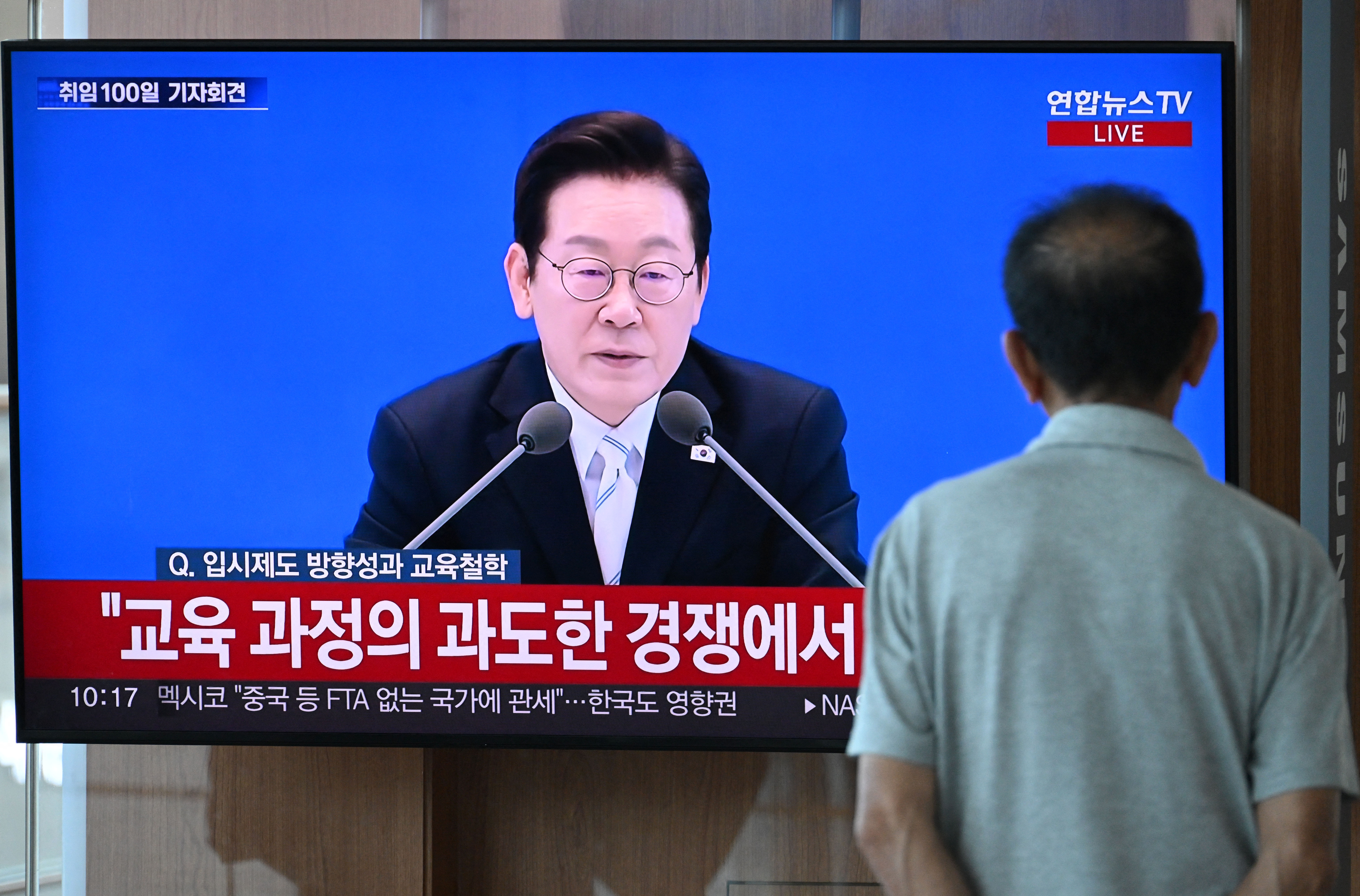
South Korean President Lee Jae-myung said a US immigration raid that led to the detention of more than 300 Korean workers has unsettled companies pouring billions into America.
“They simply needed skilled technicians to install the equipment to build the plant because there aren’t workers available in the US,” Lee said on Thursday, speaking at a press conference in Seoul to mark his 100th day in office. “This could have a significant impact on future direct investment into the US.”
Lee said the workers were dispatched only on short-term stays to install equipment and got caught up in the raid amid repeated visa denials. He added that the raid had left him “baffled.” South Korea is now in talks with the US to resolve the visa issues, either by securing more quotas or creating a new visa category, he said.
ALSO READ: Detained South Korean workers to depart US on Wednesday, Yonhap says
A total of 330 people — including 316 South Koreans — detained last week in a raid on a Hyundai Motor Co and LG Energy Solution Ltd battery plant under construction in Georgia are scheduled to be released from a US detention center around 3 pm local time Thursday and will return to South Korea Friday afternoon, according to Lee.
The incident has rattled South Korea, where images of shackled workers have circulated widely and fueled public anger. It also threatens to undermine billions in investment plans by Korean conglomerates, coming just two weeks after Lee and President Donald Trump held a summit to reaffirm their economic and security ties.
READ MORE: S. Korea to fly detained workers back as US vows more raids on employers
The detention adds to strains from a July trade deal that kept a 15 percent levy on most Korean imports. Trump has yet to sign an order lowering auto tariffs as promised, while the two sides remain divided over Seoul’s $350 billion investment pledge, a central pillar of the accord. The outcome of the standoff may determine whether Korean conglomerates press ahead with their US expansion plans or reconsider the scale of their commitments.
“We still have a long way to go in the negotiations,” Lee said. “What’s on the surface may look rough, excessive, unreasonable, even irrational, but the final conclusion will come out in a reasonable way, and we must make sure it does.”


